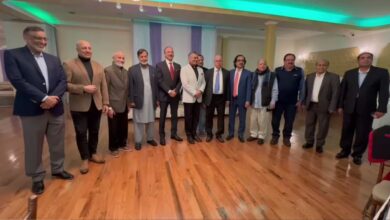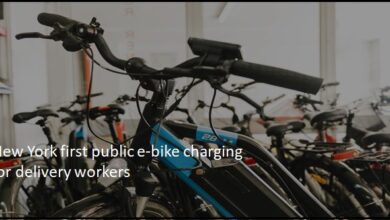EnvironmentFeatured
COVID-19, deforestation cripple life in Amazon

ANKARA
While deforestation in the Amazon rain forests continues, the lives of indigenous people are at greater risk as the mortality rate from the coronavirus is already double that of Brazil’s population.
On World Rainforest Day, celebrated annually on June 22 to raise awareness and encourage action to protect rainforests, Christian Poirier, program director for Amazon Watch, told Anadolu Agency that indigenous people in Brazil are dying at an alarming rate from the virus.
“The mortality rate is double that of the rest of Brazil’s population more than 2,640 officially confirmed cases of coronavirus and at least 252 deaths, which suggests a mortality rate of 9 to 6% compared to the national rate of 5.6%,” he said, citing data as of June 9 from the Articulation of Indigenous Peoples of Brazil (APIB).
The situation among indigenous people is also being exacerbated due to the lack of access to decent medical care as the average distance between settlements and the nearest intensive care units (ICU) being 315 kilometers (196 miles) away, he said, highlighting a study conducted by the non-profit InfoAmazonia. Ten percent of villages are 700 kilometers to 1,079 kilometers (434 miles to 670 miles) from an ICU.
“Most of the COVID-19 deaths in indigenous people have occurred in Amazonas, one of the states with the highest infection rates,” he said, stressing that the region’s health system had collapsed in March, as local officials had warned.
Poirier said the National Indian Foundation, the governmental body responsible for mapping out and protecting lands of indigenous people, is hardly doing anything to coordinate a response to the crisis, although people urged the government and the World Health Organization to improve local health care.
Indigenous people are facing the consequences of the government’s attitude towards the virus.
“There’s not enough protective equipment for agents who enter indigenous territories or meet with native people in cities. Necessities like kerosene and gasoline are in short supply,” he added.
Food deliveries began only at the beginning of the June, a month after indigenous people were instructed to remain in villages that were vulnerable to the spread of the pandemic because they lack adequate access to health care.
As of Sunday, Brazil registered 49,976 deaths from the virus with over 560,000 recoveries. Currently, there are more than 1 million confirmed cases in the country.








